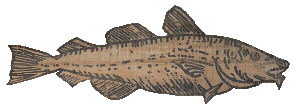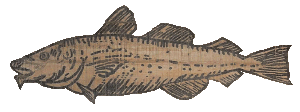Shute & Merchant


the history
On May 26, 1907, William T. Shute provided or signed the written terms for the purchase of his firm by the Gorton-Pew Fisheries Company. Those terms were hand-written on a Slade Gorton billhead that had been modified to include the name of Gorton-Pew Fisheries Company at the top.
Part of the sale included all of the name brands and goodwill of the company. During the first few years after the merger, several of the Shute & Merchant name brands were still being sold by Gorton-Pew. Invoices from the larger firm in 1908 included items under the former Shute & Merchant brand name of Eider Down, and boxes were printed with the Diamond Wedge brand name as "put up" by Gorton-Pew.
The original purchase, as noted in the article, did not include any of the buidlings or property owned at that time by Shute & Merchant. It wasn't until 1912 that the "Land at the Head of the Harbor", home to Merchant fishing entities since the 1840s, and specifically, Shute & Merchant were sold to Gorton_Pew. The final sale of the former Shute & Merchant property, and transfer of the deed was done for one-dollar and other valuable considerations, Part of those valuable considerations included having Gorton-Pew assume the $7,000.00 mortgage and taxes related to those properties.
On October 25, 1907, what appears to be the final step of the sale and merger of Shute & Merchant with the Gorton-Pew Fisheries Company, took place. William T. Shute and Benjamin A. Smith signed off on the terms that described exactly how W. T. Shute would be involved in the business.
The agreement stipulated that W. T. Shute would be paid salary that would not exceed $5,000.00 in per year, and that half of that would be paid by Gorton-Pew and half would be paid by the Merchant Box Company. His role at the Box Company was to serve as the president of the business, a position he held until his death in 1921. Shortly after his death, Benjamin A. Smith took over that position. His salary began being paid in September of 1907, a month before this document was signed.

